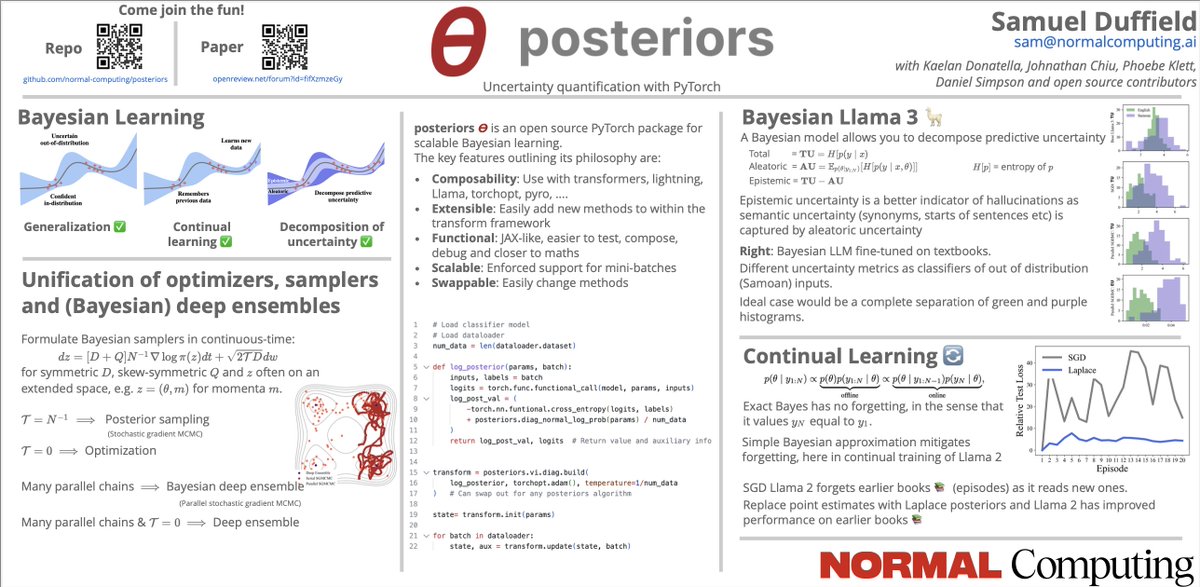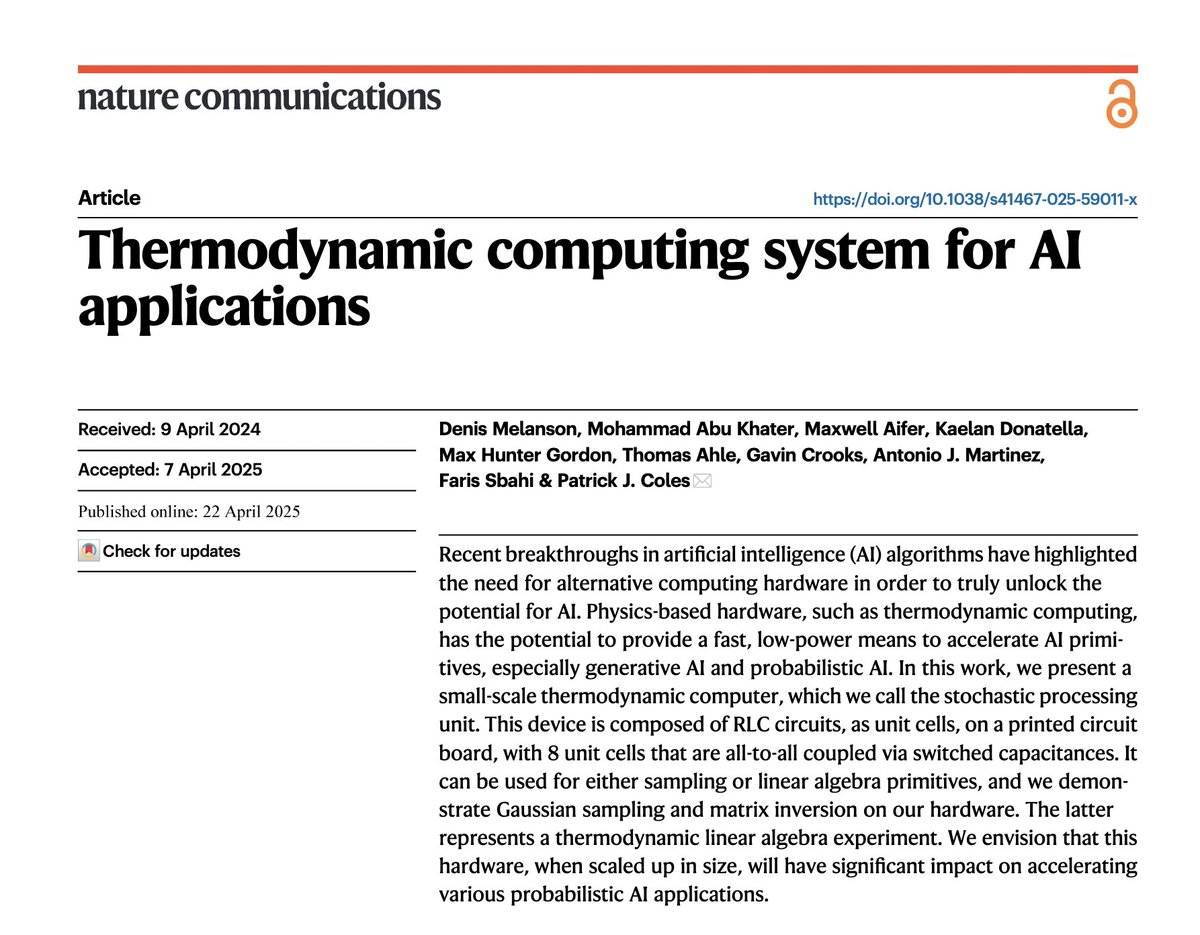
Max Aifer
@maxaifer
Theorist @NormalComputing. Thermodynamic computing for efficient AI.
ID: 1416742764562296833
18-07-2021 12:53:08
514 Tweet
2,2K Takipçi
2,2K Takip Edilen







during NYC deep tech week, i gave a talk about how Normal Computing 🧠🌡️ is scaling our thermodynamic computing paradigm to tackle large scale AI and scientific computing workloads today, we're releasing a blog post based on that talk! ⬇️

Come out and join us, so we can talk about physical world AI and thermodynamic chips. Looking forward to hosting with Nathan Benaich.


posteriors 𝞡, our open source Python library for Bayesian computation, will be presented at #ICLR2025! posteriors provides essential tools for uncertainty quantification and reliable AI training. Join Sam Duffield at his poster session 'Scalable Bayesian Learning with


We're excited to share that our research "Thermodynamic computing system for AI applications" has been published in Nature Communications, detailing our early work on a prototype thermodynamic computer. Our stochastic processing unit used coupled RLC circuits with injected noise to demo



Here’s an analogy for how research works (partly inspired by Patrick Coles ). It’s like building a pyramid; you start with the first layer, which is the largest, and takes a lot of work. Then you build another layer on top of that, which is a little smaller and a little


I’m proud to have contributed to Normal Computing 🧠🌡️’s mission of creating a unified theory of thermodynamics and AI over the last two years. Computer science research should aim to be basic science research. I’m excited to share a self-contained introduction to thermodynamic







